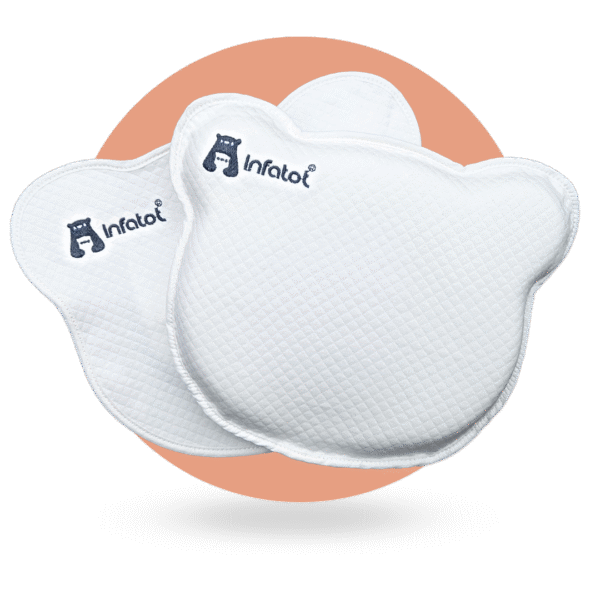Blog

As a new parent, you may have heard about the importance of tummy time for your baby’s development. Tummy time is simply the practice of placing your baby on their stomach while they are awake and supervised. While it may seem like a small and insignificant activity, tummy time can actually play a critical role in your baby’s physical, cognitive, and social-emotional development. In this blog post, we will explore why tummy time is so important and how you can incorporate it into your baby’s daily routine.
- Tummy Time Helps Develop Strong Neck and Shoulder Muscles
One of the most significant benefits of tummy time is that it helps your baby develop strong neck and shoulder muscles. When your baby is placed on their stomach, they are forced to lift their head to look around, which strengthens the muscles in their neck and upper body. This is an important foundation for many other physical milestones, such as sitting up, crawling, and walking. Without sufficient neck and shoulder strength, your baby may struggle with these milestones, so tummy time is an essential early step in their development.
- Tummy Time Can Help Prevent Flat Head Syndrome
Flat head syndrome, also known as plagiocephaly, is a condition where a baby’s head becomes flattened in one spot due to prolonged pressure on that area. This can occur when babies spend too much time on their backs or in car seats and strollers. However, tummy time can help prevent flat head syndrome by giving your baby the opportunity to spend time on their stomach and relieve pressure on the back of their head. By varying your baby’s position throughout the day, you can help ensure they develop a symmetrical and healthy head shape.
- Tummy Time Encourages Gross Motor Skills
In addition to strengthening your baby’s neck and shoulder muscles, tummy time also encourages the development of gross motor skills. When your baby is on their stomach, they are in a position to push up with their arms and eventually learn to roll over, sit up, and crawl. These are all important milestones that contribute to your baby’s physical development and help them become more independent and self-sufficient over time.
- Tummy Time Stimulates Cognitive Development
Tummy time isn’t just beneficial for your baby’s physical development – it can also stimulate their cognitive development. When your baby is on their stomach, they are in a new and interesting position that encourages them to explore their environment. They can look at and reach for toys, practice tracking objects with their eyes, and engage in other forms of sensory play. This helps your baby learn more about the world around them, develop their hand-eye coordination, and enhance their overall cognitive abilities.
- Tummy Time Promotes Social-Emotional Development
Finally, tummy time can also promote your baby’s social-emotional development. When you place your baby on their stomach, you are interacting with them in a different way than when you hold them or place them on their back. This encourages bonding and attachment, and helps your baby feel more connected to you and their environment. As your baby grows and develops, this sense of security and trust will become increasingly important for their emotional wellbeing.
Now that you understand the many benefits of tummy time, you may be wondering how to incorporate it into your baby’s daily routine. Here are some tips for making tummy time a regular and enjoyable activity for both you and your baby:
- Start with short periods of time, gradually increasing the duration as your baby becomes more comfortable and confident.
- Use a soft blanket or play mat to cushion your baby’s tummy and make the experience more comfortable.
- Get down on the floor with your baby to encourage interaction and play.
- Use toys, books, or other objects to capture your baby’s interest and encourage exploration.
- Try different positions, such as propping your baby up on a boppy pillow or holding them in a football hold.
- Incorporate tummy time into your daily routine, such as after diaper changes or naps.
It’s important to remember that every baby is different and may have different preferences when it comes to tummy time. Some babies may initially resist tummy time, but with patience and encouragement, they will eventually learn to enjoy it. As your baby grows and develops, you can continue to modify and adjust your tummy time routine to keep it engaging and stimulating.
In addition to incorporating tummy time into your baby’s daily routine, there are also some things you can do to support your baby’s overall development:
- Provide plenty of opportunities for sensory exploration, such as introducing different textures, colors, and sounds.
- Encourage your baby to interact with other people and socialize with other babies and children.
- Create a safe and nurturing environment that allows your baby to explore and learn at their own pace.
- Offer plenty of praise and encouragement to help build your baby’s confidence and self-esteem.
In conclusion, tummy time is a simple yet essential activity that can have a significant impact on your baby’s development. By helping your baby develop strong neck and shoulder muscles, preventing flat head syndrome, encouraging gross motor skills, stimulating cognitive development, and promoting social-emotional development, tummy time lays the foundation for many important physical, cognitive, and social-emotional milestones. By incorporating tummy time into your baby’s daily routine and supporting their overall development, you can help ensure that your baby grows and thrives in a healthy and nurturing environment.
Top rated products
-
 Infatot Plagiocephaly
Infatot Plagiocephaly
Flat Head PillowRated 5.00 out of 5£19.99 -
 7 Piece Baby Bib
7 Piece Baby Bib
Weaning SetRated 5.00 out of 5£17.99Original price was: £17.99.£14.99Current price is: £14.99. -
 Fruit Feeder & Tray Set
Rated 4.91 out of 5£14.99
Fruit Feeder & Tray Set
Rated 4.91 out of 5£14.99 -
 Koda Koala Bitey Pair
Rated 4.87 out of 5£7.99
Koda Koala Bitey Pair
Rated 4.87 out of 5£7.99
















